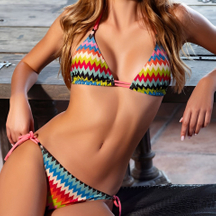Content Menu
● 1. The French Swimwear Landscape
● 2. Public Pool Regulations
● 3. Beach Etiquette and Regulations
● 4. Cultural Considerations
● 5. Practical Tips for Swimwear Shopping in France
● 6. Swimwear Trends in France
● 7. Adapting to Different Scenarios
● 8. Children's Swimwear
● 9. Accessorizing Your Swimwear
● 10. Environmental Considerations
● 11. Embracing French Beach Culture
● 12. Navigating Swimwear Shopping
● 13. Dealing with Swimwear Regulations
● 14. The Future of Swimwear in France
● Video: The Ultimate French Chic Beachwear Bodyshape Guide
● FAQs
>> 1. Q: Are board shorts allowed in French public pools?
>> 2. Q: Do I need to wear a swimming cap in French pools?
>> 3. Q: Can women wear bikinis on French beaches?
>> 4. Q: Is topless sunbathing allowed in France?
>> 5. Q: Are burkinis permitted in French public pools and beaches?
France, renowned for its stunning beaches, luxurious resorts, and vibrant pool culture, has some unique regulations when it comes to swimwear. Whether you're planning a vacation to the French Riviera, a city break in Paris, or a camping trip in the countryside, understanding what swimwear is acceptable in France can save you from embarrassment and ensure you comply with local customs. This comprehensive guide will explore the ins and outs of French swimwear regulations, cultural norms, and practical tips for enjoying your aquatic adventures in style.
1. The French Swimwear Landscape
France has a long history of beach culture and a reputation for fashion-forward thinking. However, when it comes to swimwear, the country often surprises visitors with its somewhat conservative approach, especially in public pools and water parks. The rules can vary depending on whether you're at a beach, a public pool, or a private resort, so it's essential to be prepared for different scenarios.
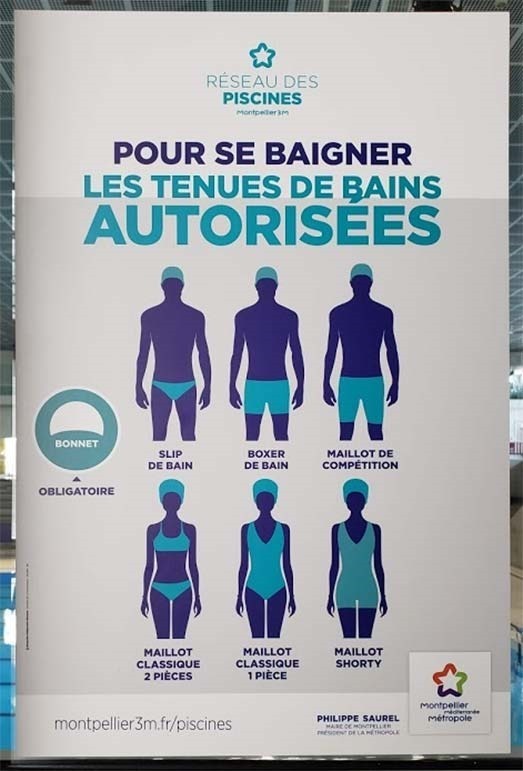
2. Public Pool Regulations
One of the most striking differences visitors notice is the strict regulation of swimwear in public pools. These rules are not arbitrary but are based on hygiene and safety concerns. Here's what you need to know:
a) Men's Swimwear:
- Tight-fitting swim briefs or "budgie smugglers" are mandatory in most public pools.
- Loose-fitting swim shorts, board shorts, or bermudas are often prohibited.
- The reasoning behind this is that tighter swimwear is less likely to have been worn as streetwear, thus reducing the introduction of contaminants into the pool.
b) Women's Swimwear:
- One-piece swimsuits and bikinis are generally acceptable.
- Full-coverage options are preferred, with some pools banning string bikinis or thongs.
- Burkinis (full-body swimsuits) have been a subject of controversy and may be banned in some public pools.
c) Additional Requirements:
- Swimming caps are often mandatory for both men and women.
- Shower before entering the pool is usually required.
- Proper swimming attire must be worn; no underwear or clothing that could be mistaken for streetwear is allowed.
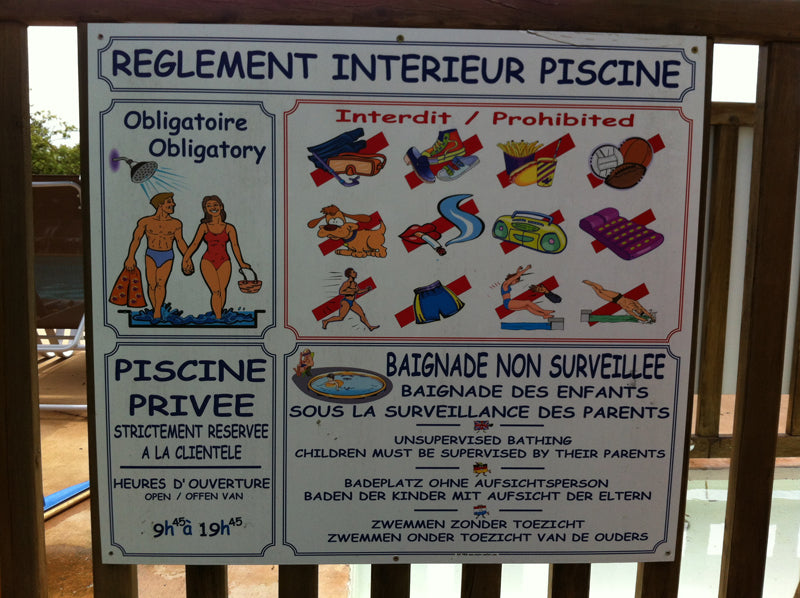
3. Beach Etiquette and Regulations
French beaches tend to be more relaxed when it comes to swimwear regulations, but there are still some guidelines to keep in mind:
a) Public Beaches:
- A wider variety of swimwear is acceptable, including swim shorts for men and various styles of bikinis and one-pieces for women.
- Topless sunbathing is legal on many French beaches, but it's important to read the local signs and be respectful of the surrounding environment.
- Nudist beaches exist in France, but they are clearly marked. Regular swimwear is expected on non-nudist beaches.
b) Private Beaches and Resorts:
- These may have their own dress codes, which can range from very relaxed to quite formal.
- High-end beach clubs might expect a more sophisticated style of swimwear and cover-ups.
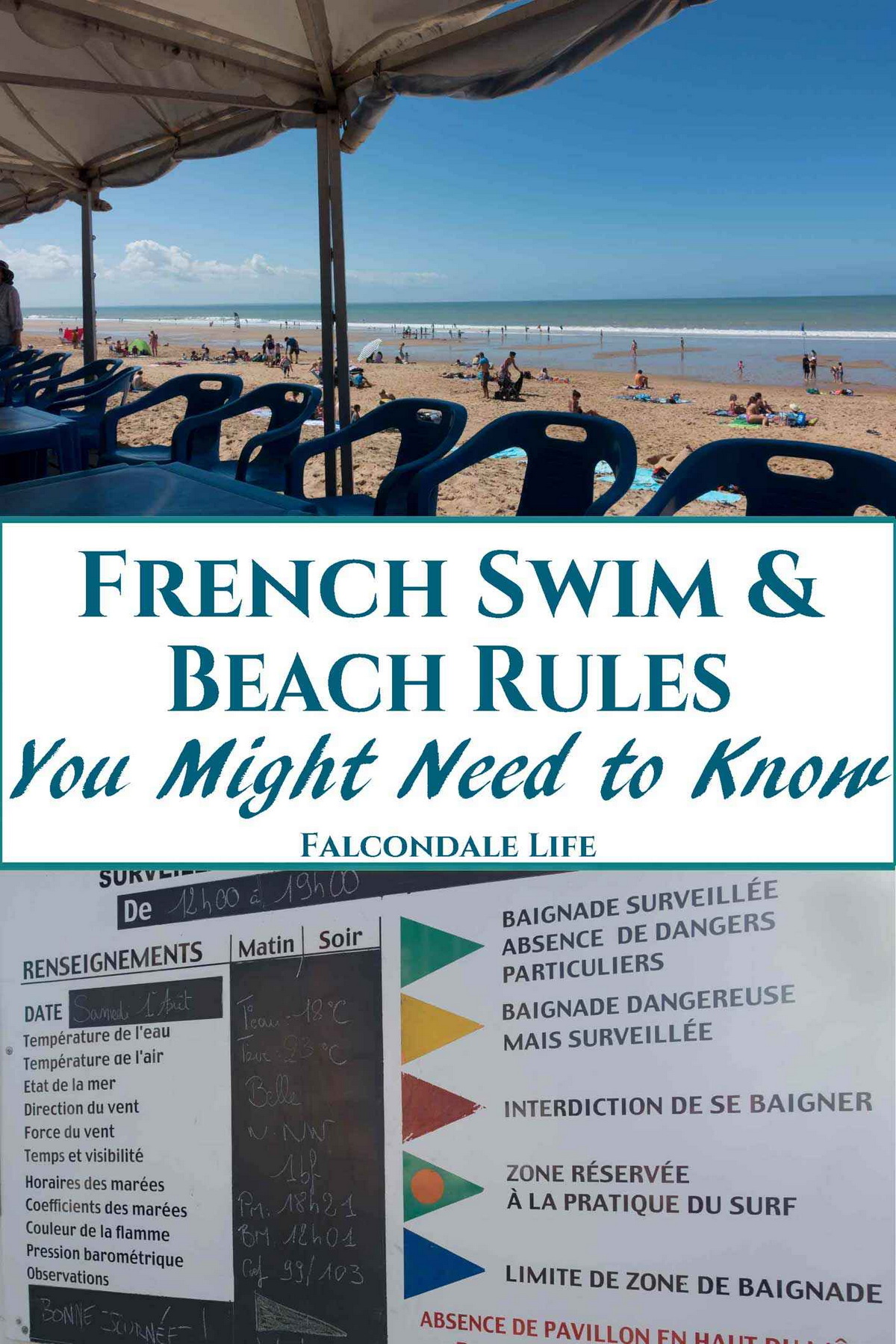
4. Cultural Considerations
Understanding the cultural context behind French swimwear regulations can help visitors navigate the rules with ease:
a) Hygiene Focus:
The French place a high value on cleanliness in public spaces. The strict swimwear rules in pools are primarily aimed at maintaining water quality and hygiene standards.
b) Body Confidence:
French beach culture often embraces body positivity. You'll see people of all ages and body types confidently wearing swimwear that might be considered revealing in other cultures.
c) Fashion Sense:
Even at the beach or pool, the French often maintain a sense of style. Coordinated swimwear sets, elegant cover-ups, and fashionable accessories are common sights.
5. Practical Tips for Swimwear Shopping in France
If you find yourself in need of new swimwear that complies with French regulations, here are some tips:
a) Department Stores:
Large department stores like Galeries Lafayette or Printemps offer a wide range of swimwear options that comply with local norms.
b) Specialty Swimwear Shops:
In coastal towns and cities, you'll find boutiques specializing in swimwear that caters to both local regulations and fashion trends.
c) Sports Stores:
For more athletic swimwear, especially the type required for public pools, sports stores like Decathlon are excellent options.
d) Local Markets:
Seasonal markets in beach towns often have stalls selling swimwear. While these may be more budget-friendly, ensure they meet the standards for where you plan to swim.
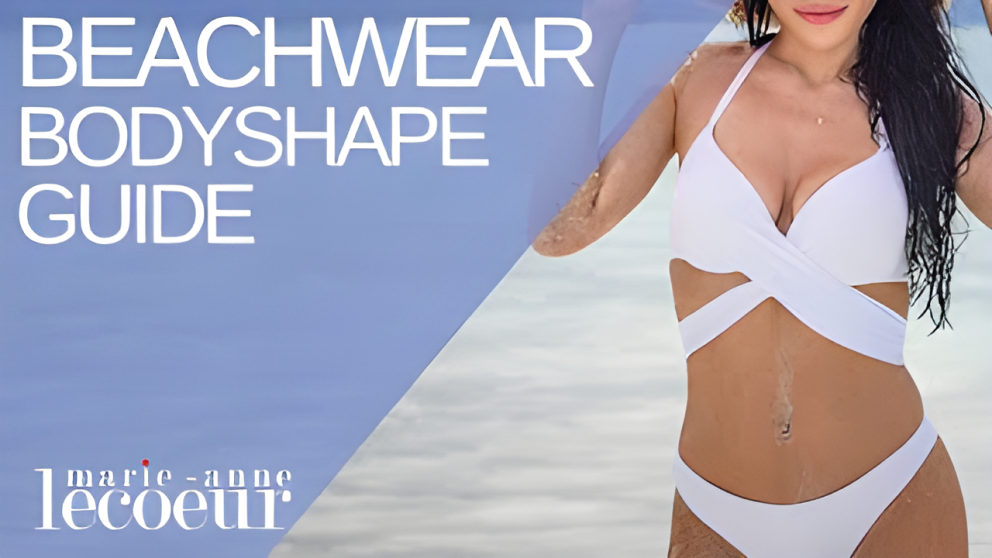
6. Swimwear Trends in France
French swimwear fashion is constantly evolving. Here are some current trends:
a) Sustainable Swimwear:
Eco-friendly materials and production methods are becoming increasingly popular.
b) Retro Styles:
High-waisted bikini bottoms and vintage-inspired one-pieces are making a comeback.
c) Athletic Influences:
Performance-oriented swimwear with a fashionable twist is gaining traction, especially in coastal sports communities.
d) Modest Options:
There's a growing market for stylish, modest swimwear that provides more coverage while still looking chic.
7. Adapting to Different Scenarios
Your swimwear needs may vary depending on your activities in France:
a) City Pools:
Stick to the strictest regulations with fitted swim briefs for men and one-pieces or modest bikinis for women. Don't forget your swimming cap!
b) Beach Resorts:
You can be more relaxed here, but still aim for a put-together look. Coordinated sets and elegant cover-ups are appreciated.
c) Water Parks:
These often follow similar rules to public pools, so come prepared with regulation-compliant swimwear.
d) River or Lake Swimming:
When swimming in natural bodies of water, the rules are generally more relaxed, but it's still wise to be modest and respectful of local customs.
8. Children's Swimwear
When it comes to children's swimwear in France, the rules are generally more relaxed, but there are still some guidelines to follow:
a) Public Pools:
- Young children are often allowed to wear swim shorts, but as they get older, boys may be required to switch to fitted briefs.
- Girls can typically wear one-piece suits or two-piece bikinis, as long as they're secure and appropriate for swimming.
- Swimming diapers are mandatory for infants and toddlers who aren't yet toilet-trained.
b) Beaches and Resorts:
- There's more flexibility here, with swim shorts, rash guards, and various styles of swimsuits all being acceptable.
- Sun protection is a priority, so UV-protective swimwear is common and encouraged.

9. Accessorizing Your Swimwear
In France, the right accessories can elevate your beach or pool look:
a) Cover-ups:
Elegant kaftans, sarongs, or light dresses are popular for moving between the beach and nearby establishments.
b) Footwear:
Flip-flops are common on the beach, but you might want dressier sandals for beach clubs or restaurants.
c) Sun Protection:
Wide-brimmed hats and stylish sunglasses are both functional and fashionable accessories.
d) Beach Bags:
Chic, oversized bags are perfect for carrying all your beach essentials.
10. Environmental Considerations
France is increasingly focusing on environmental protection, which extends to beach and pool culture:
a) Eco-friendly Sunscreens:
Many French beaches, especially those near coral reefs, encourage or require the use of reef-safe sunscreens.
b) Beach Clean-up:
Participating in local beach clean-up initiatives is a great way to show respect for the environment and engage with the community.
c) Sustainable Materials:
Look for swimwear made from recycled materials or sustainable fabrics to minimize your environmental impact.
11. Embracing French Beach Culture
To fully enjoy your swimming experience in France, it's worth embracing some aspects of French beach culture:
a) Leisurely Pace:
The French often spend entire days at the beach, interspersing swimming with long lunches and social gatherings.
b) Beach Sports:
Participate in popular beach activities like pétanque or beach volleyball to immerse yourself in the local scene.
c) Aperitif Tradition:
Many French beachgoers enjoy a pre-dinner drink or light snack on the beach as the day winds down.
d) Respect for Privacy:
While beaches are social places, the French also value personal space and quiet enjoyment.
12. Navigating Swimwear Shopping
If you need to purchase swimwear in France, here are some phrases that might be helpful:
- "Je cherche un maillot de bain" (I'm looking for a swimsuit)
- "Où sont les cabines d'essayage?" (Where are the fitting rooms?)
- "Est-ce que ce maillot est autorisé dans les piscines publiques?" (Is this swimsuit allowed in public pools?)
- "Avez-vous des bonnets de bain?" (Do you have swimming caps?)
13. Dealing with Swimwear Regulations
If you find yourself in a situation where your swimwear doesn't meet local regulations, stay calm and polite. Here are some strategies:
a) Rental Options:
Some pools offer compliant swimwear for rent. While not ideal, it's a good temporary solution.
b) Quick Shopping Trip:
If you're staying for a while, it might be worth purchasing regulation-compliant swimwear.
c) Alternative Activities:
If you can't swim due to swimwear issues, consider other water-related activities like boat tours or waterside picnics.
14. The Future of Swimwear in France
As with all aspects of fashion and culture, swimwear norms in France are not static:
a) Ongoing Debates:
Discussions continue about inclusivity in swimwear regulations, particularly regarding religious garments like burkinis.
b) Technological Advancements:
Innovations in fabric technology may lead to new types of swimwear that meet hygiene standards while offering more style options.
c) Cultural Shifts:
As France becomes increasingly multicultural, swimwear norms may evolve to reflect a more diverse population.
In conclusion, navigating the world of French swimwear regulations might seem daunting at first, but with a little preparation and understanding, it becomes a fascinating glimpse into French culture. Whether you're lounging on the Côte d'Azur, taking a dip in a Parisian pool, or enjoying a lakeside retreat, knowing what swimwear to pack and wear will ensure you can fully enjoy France's beautiful aquatic offerings. Remember, the key is to respect local customs while feeling comfortable and confident in your chosen swimwear. With the right attitude and attire, you're all set for a memorable French swimming experience. Bon voyage et bonne baignade!
Video: The Ultimate French Chic Beachwear Bodyshape Guide
[The Ultimate French Chic Beachwear Bodyshape Guide!]
[WHAT I WORE THIS WEEK IN THE SOUTH OF FRANCE | holiday outfits & skin care routine!]
[Top French court upholds ban on full-body swimsuits in public pools!]
FAQs
Now, let's address some frequently asked questions about swimwear in France:
1. Q: Are board shorts allowed in French public pools?
A: Generally, no. Most public pools in France require men to wear tight-fitting swim briefs or "budgie smugglers." Board shorts are often considered unhygienic and are prohibited.
2. Q: Do I need to wear a swimming cap in French pools?
A: Yes, in many public pools in France, wearing a swimming cap is mandatory for both men and women. This rule is enforced to maintain water hygiene and keep the pool filters clean.
3. Q: Can women wear bikinis on French beaches?
A: Yes, bikinis are perfectly acceptable on most French beaches. However, on public beaches, it's advisable to choose a more modest style rather than very revealing designs.
4. Q: Is topless sunbathing allowed in France?
A: While topless sunbathing is legal on many French beaches, it's not universally accepted. Always check local regulations and be mindful of the specific beach culture before going topless.
5. Q: Are burkinis permitted in French public pools and beaches?
A: This is a complex and sometimes controversial issue. Burkinis are generally allowed on public beaches but may be banned in some public pools. It's best to check the specific regulations of the location you plan to visit.





















